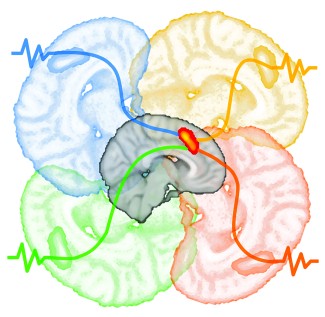At the intersection of psychology and biology, this field focuses on identifying the brain circuits that cause mental processes and how they are altered by disease, treatment and rehabilitation.
Mobilization of teams
Teams in this area are studying how the brain encodes language, attention, consciousness, sleep, motivation, decision-making, cognitive biases, behavioural control, creativity, reasoning, mood, emotion and the effects of social influences.
Tools and methods
To shed light on the hidden neurocognitive basis of these mental processes, the teams are combining behavioural testing, mathematical modelling and brain imaging. They apply these tools to study cognition in healthy individuals and in patients with disorders such as depression, apathy, dementia, aphasia, and disorders of planning, reasoning and behavioural control. The results obtained in this area of research allow an understanding of neurological and psychiatric diseases through the prism of behaviour and brain imaging, which has implications for the development of new treatment strategies.







